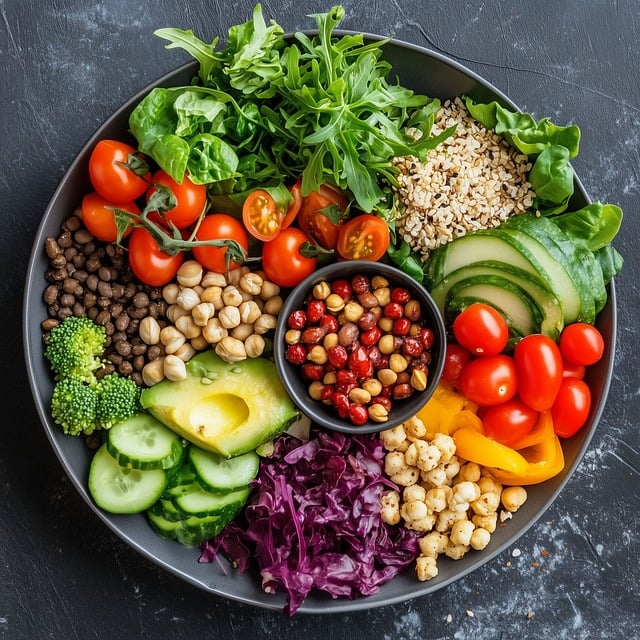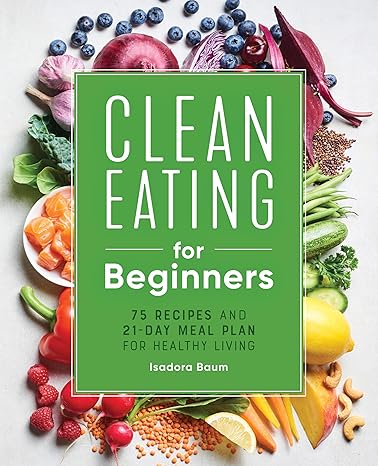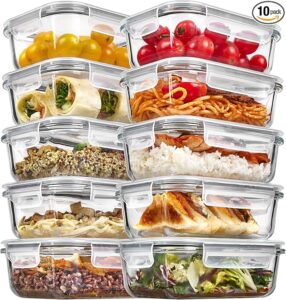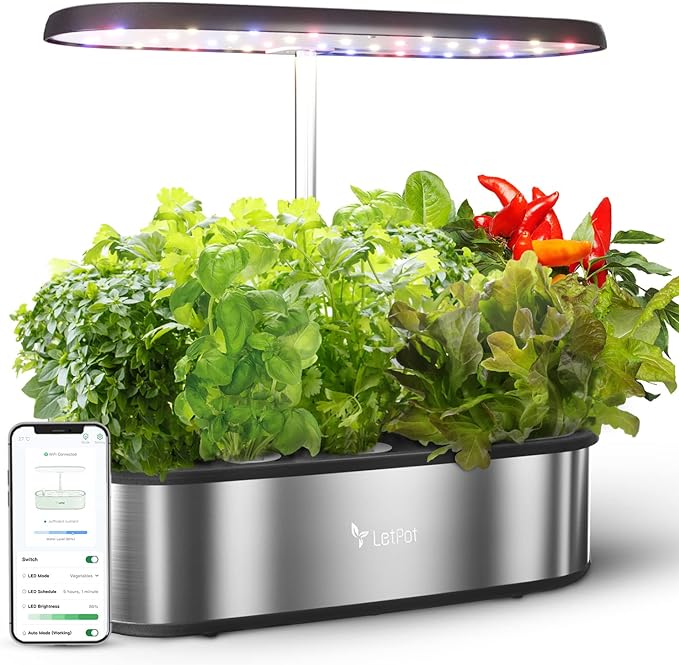
The Benefits of Clean Eating and Wholesome Foods
The Benefits of Clean Eating and Wholesome Foods
A Path to a Healthier Life
Clean eating and wholesome foods are more than just buzzwords—they’re a lifestyle that promotes long-term health, vitality, and well-being.
With processed foods dominating many diets today, embracing a clean eating approach is a way to return to nutrient-dense, natural ingredients that nourish the body and mind.
Whether you’re new to clean eating or looking to refine your approach, this guide will outline the powerful benefits of clean eating and provide practical tips to help you embark on this life-changing journey.
What is Clean Eating?
Clean eating is a lifestyle centered around consuming whole, minimally processed foods.
The focus is on nourishing your body with natural ingredients, free from added chemicals, preservatives, and artificial flavors. Here are the core principles:
- Whole Foods, Not Processed: Prioritize real, unprocessed foods like vegetables, fruits, whole grains, lean proteins, and healthy fats.
- Avoid Added Sugars and Preservatives: Read labels carefully to avoid foods with hidden sugars and artificial ingredients.
- Eat More Plants: Vegetables, fruits, legumes, and whole grains are the foundation of clean eating.
- Hydration: Clean eating also emphasizes drinking plenty of water and avoiding sugary beverages.
By focusing on whole, nutrient-dense foods, clean eating helps you eliminate unhealthy, processed ingredients from your diet, paving the way for better health.
The Rise of Chemically Processed Foods
The convenience of processed foods has led to their dominance in the modern diet. Decades ago, food processing was limited, and most people ate fresh, local foods.
However, the rise of big corporations in the food industry has changed this landscape.
These companies have introduced a variety of chemically processed foods that are cheap, long-lasting, and easily accessible, but often at the cost of our health.
Wholesome Foods: The Cornerstone of Clean Eating
At the heart of clean eating are wholesome foods—ingredients that are minimally processed and rich in nutrients.
These foods provide your body with essential vitamins and minerals, which contribute to overall well-being. Below are key categories of wholesome foods to include in your diet:
Vegetables
- High in fiber, vitamins, and antioxidants
- Help protect against chronic diseases
- Include a variety of colors (leafy greens, cruciferous vegetables, root vegetables)
Fruits
- Packed with vitamins, especially vitamin C and potassium
- Natural sweetness without added sugars
- Opt for whole fruits over juices for the fiber benefits
Whole Grains
- Brown rice, quinoa, oats, and whole wheat provide energy and fiber
- Help regulate blood sugar levels and promote heart health
Lean Proteins
- Fish, poultry, eggs, legumes, and tofu
- Provide essential amino acids for muscle repair and immune function
- Choose plant-based proteins when possible
Healthy Fats
- Avocados, nuts, seeds, and olive oil
- Support brain health, reduce inflammation, and provide long-lasting energy
Incorporating these wholesome foods into your meals will not only enhance your nutrition but also help you stay fuller longer, reducing the temptation for unhealthy snacking.
Toxic Chemicals in Processed Foods
Many processed foods include harmful chemicals that can have long-term severe consequences for human health.
These include ingredients such as high fructose corn syrup, artificial sweeteners, trans fats, and preservatives like BHA and BHT.
These chemicals have been associated with a variety of health concerns, including obesity, heart disease, and cancer.
The Top Benefits of Clean Eating and Wholesome Foods
Clean eating offers a multitude of benefits that affect various aspects of your health.
Below are the top advantages of adopting this lifestyle:
1. Improved Digestion
- Whole foods are naturally high in fiber, which aids digestion and prevents constipation.
- A balanced clean eating diet supports a healthy gut microbiome, reducing bloating and discomfort.
2. Increased Energy Levels
- Processed foods often cause energy crashes due to high sugar content and lack of nutrients.
- Clean eating provides sustained energy through nutrient-dense meals, keeping you energized throughout the day.
3. Weight Management
- By cutting out processed foods and empty calories, clean eating naturally promotes healthy weight loss and maintenance.
- Whole foods help regulate hunger hormones, preventing overeating and promoting portion control.
4. Stronger Immune System
- A clean eating lifestyle is rich in vitamins, minerals, and antioxidants, all of which strengthen your immune system.
- Foods like citrus fruits, leafy greens, and nuts provide immune-boosting nutrients like vitamin C, vitamin D, and zinc.
5. Better Mental Clarity and Emotional Balance
- The nutrients in wholesome foods positively impact brain health, improving concentration, memory, and mental clarity.
- Clean eating can also help stabilize mood swings and reduce symptoms of anxiety and depression, thanks to its focus on balanced, nutrient-rich meals.
By prioritizing clean, whole foods, you give your body the tools it needs to function optimally, both physically and mentally.
Impact on Mind, Body, and Soul
The excessive consumption of processed foods impacts not only our physical health, but also our mental, emotional, and spiritual well-being.
According to studies, eating a lot of processed meals might cause depression, anxiety, and mood fluctuations.
Physically, these foods may promote inflammation, tiredness, and other chronic health problems.
Spiritually, the absence of natural, healthful foods might result in a sense of imbalance or separation from oneself.
Clean Eating Tips for Beginners
Starting a clean eating journey can feel overwhelming, but it doesn’t have to be. Here are some practical tips for beginners:
1. Start Small
- Begin by incorporating one clean, wholesome meal into your day. For example, swap your sugary cereal for a bowl of oatmeal with fresh fruit and nuts.
- Gradually increase your clean eating habits until most of your meals follow this pattern.
2. Read Labels
- When shopping, take the time to read food labels. Look for whole, recognizable ingredients, and avoid anything with added sugars, artificial flavors, or preservatives.
- Stick to the perimeter of the grocery store where fresh produce, meats, and dairy are located, rather than processed foods in the center aisles.
3. Meal Prep
- Prepping your meals ahead of time ensures you always have wholesome options available.
- Set aside time each week to cook and portion out meals, so you aren’t tempted by processed convenience foods during busy times.
4. Stay Hydrated
- Water is an essential part of clean eating. It helps flush toxins from your body and keeps you hydrated.
- Aim for at least 8 glasses of water a day, and avoid sugary sodas and artificially sweetened drinks.
Following these tips will help you ease into clean eating while forming sustainable, healthy habits.
Common Misconceptions About Clean Eating
With so much information about clean eating, there are bound to be some misconceptions.
Let’s debunk a few common myths:
1. It’s a Diet, Not a Lifestyle
- Clean eating is not a short-term diet. It’s a lifestyle change that emphasizes long-term health, rather than quick fixes.
- The goal is to nourish your body consistently, not to restrict calories or achieve rapid weight loss.
2. You Have to Eliminate Entire Food Groups
- Clean eating is about balance, not deprivation. You don’t need to eliminate entire food groups, such as carbs or fats, to eat clean.
- Instead, focus on consuming whole grains and healthy fats in moderation.
3. It’s Expensive
- While organic foods can be pricier, clean eating doesn’t have to break the bank. You can eat clean on a budget by:
- Buying seasonal produce
- Choosing frozen vegetables (which retain their nutritional value)
- Shopping in bulk for grains, legumes, and nuts
Understanding these misconceptions will help you approach clean eating with a more realistic and balanced mindset.
How to Sustain a Clean Eating Lifestyle Long-Term
Sustaining a clean eating lifestyle is about setting achievable goals and allowing flexibility.
Here’s how you can make clean eating a permanent part of your life:
1. Set Realistic Goals
- Don’t aim for perfection. Start with small, manageable changes and build upon them as you feel comfortable.
- For example, commit to cooking at least three clean meals a week and gradually increase that number.
2. Be Flexible
- Life happens, and sometimes it’s not possible to eat clean 100% of the time. Allow yourself some flexibility without guilt.
- A clean eating lifestyle allows for balance—if you indulge occasionally, simply return to wholesome choices for your next meal.
3. Build a Support System
- Surround yourself with people who support your clean eating goals. Share recipes, and meal prep together, or join an online community focused on wholesome living.
- Having a strong support system will keep you motivated and accountable.
4. Listen to Your Body
- Tune into how your body feels when you eat certain foods. Are you energized or sluggish? Do you feel bloated or satisfied?
- Adjust your clean eating habits based on how different foods affect your body. Clean eating should feel good, not restrictive.
By focusing on these long-term strategies, you can maintain your clean eating lifestyle without feeling overwhelmed or restricted.
How to Transition to Clean Eating
Transitioning to clean eating doesn’t have to be overwhelming.
Start by gradually replacing processed foods with whole foods.
For example, swap out white bread for whole-grain alternatives, and choose fresh fruit over sugary snacks.
Planning your meals ahead of time can also help you stick to your clean eating goals.
Supporting Small Family Brands
Not only are you investing in your health when you choose to support small family brands, but you’re also helping companies that value quality over quantity.
These companies frequently support organic farming methods and the production of food devoid of dangerous additives and preservatives. Your purchase from these businesses helps create a more wholesome food system.
How Big Corporations Have Taken Over the Food Industry
Big corporations dominate the food industry, pushing out small, local producers and flooding the market with cheap, processed foods.
This takeover has led to a decrease in food quality and an increase in health problems related to poor diet.
It’s important to be aware of this shift and make conscious choices to support small businesses and eat healthier foods.
The Future of Clean Eating
As more people seek transparency and quality in the foods they eat, the clean eating movement is expanding.
By choosing foods that are healthy for our bodies and endorsing ethical products, we consumers can create change.
The future of clean eating looks promising, with a growing focus on sustainability, health, and well-being.
How to Purchase Wholesome Foods Online
In today’s digital age, buying wholesome foods online is easier than ever.
When shopping online, look for trustworthy platforms that offer organic, non-GMO products.
Websites like Thrive Market, Vitacost, and small family farms‘ online stores are excellent places to start.
Always read product descriptions and reviews to ensure you’re getting high-quality items.
Spotting Greenwashing: What to Avoid
Unfortunately, not all products labeled as “natural” or “organic” are genuinely wholesome.
Greenwashing, or the deceptive practice of marketing products as environmentally friendly when they’re not, is common.
To avoid falling for these tactics, research brands and check for certifications like USDA Organic or Non-GMO Project Verified.
Budget-Friendly Clean Eating
Eating healthily doesn’t have to be expensive.
It is possible to eat healthily without going over budget, that is, if you plan your meals, shop in bulk, and concentrate on seasonal vegetables.
To save money and enjoy fresh, local produce, think about starting your vegetable garden or enrolling in a community-supported agriculture (CSA) program.
Conclusion
Clean eating and incorporating wholesome foods into your daily routine is a transformative step toward a healthier, more balanced life.
The benefits of clean eating are undeniable from improved digestion and energy levels to stronger immunity and mental clarity.
Whether you’re just starting or looking to refine your approach, remember that clean eating is not about perfection—it’s about progress.
Start small, be patient with yourself, and enjoy the journey toward a healthier, more vibrant you.
So, why wait? Take the first step today and begin reaping the powerful benefits of clean eating and wholesome foods for a better tomorrow.
If you’re an Amazon junkie, check out their Whole Foods Market.
Sources:
Mayo Clinic – On the benefits of whole foods and clean eating: “A diet rich in whole grains, fruits, vegetables, and lean proteins can reduce the risk of chronic diseases and promote overall well-being.”
Source: Mayo Clinic Staff. “Nutrition and Healthy Eating.” Mayo Clinic, 2023.
https://www.mayoclinic.org/healthy-lifestyle/nutrition-and-healthy-eatingHarvard Health – On the link between clean eating and better digestion: “Fiber-rich foods from plants—such as vegetables, fruits, legumes, and whole grains—are critical for healthy digestion and reducing inflammation.”
Source: Harvard T.H. Chan School of Public Health. “The Nutrition Source: Fiber.” Harvard Health Publishing, 2023.
https://www.hsph.harvard.edu/nutritionsource/fiber/Cleveland Clinic – On how clean eating improves energy levels and weight management: “Eating nutrient-dense, minimally processed foods helps regulate energy levels and supports weight management by avoiding spikes in blood sugar.”
Source: Cleveland Clinic. “How to Eat Clean: What You Need to Know.” Cleveland Clinic, 2022.
https://health.clevelandclinic.org/what-does-eating-clean-mean/WebMD – On the mental health benefits of clean eating: “A diet that prioritizes whole foods can improve mental health by providing essential nutrients, such as omega-3 fatty acids and antioxidants, which reduce symptoms of anxiety and depression.”
Source: Kathleen M. Zelman, MPH, RD, LD. “Can What You Eat Affect Your Mental Health?” WebMD, 2021.
https://www.webmd.com/diet/obesity/ss/slideshow-foods-improve-mental-healthNational Institutes of Health (NIH) – On the role of antioxidants in strengthening the immune system: “Antioxidants found in fruits and vegetables play a significant role in boosting immunity by fighting free radicals and reducing inflammation.”
Source: National Institutes of Health. “Antioxidants: In-Depth.” NIH, 2023.
https://www.nih.gov/news-events/antioxidants-health-benefits
FAQs
What are some easy steps to start clean eating?
Start by replacing processed foods with whole foods, plan your meals ahead, and gradually introduce more fruits, vegetables, and whole grains into your diet.
Are organic foods always better?
Organic foods are generally better because they are grown without synthetic pesticides and fertilizers, but it’s essential to read labels and understand what you’re buying.
Can I still eat out while practicing clean eating?
Yes, many restaurants now offer clean eating options. Look for menus that focus on fresh, whole ingredients and avoid dishes with heavily processed components.
How can I involve my family in clean eating?
Involve your family by cooking meals together, educating them about the benefits of clean eating, and making it a fun and enjoyable experience.
What are the long-term benefits of clean eating?
The long-term benefits of clean eating include reduced risk of chronic diseases, improved mental health, sustained energy levels, and a greater sense of overall well-being.


